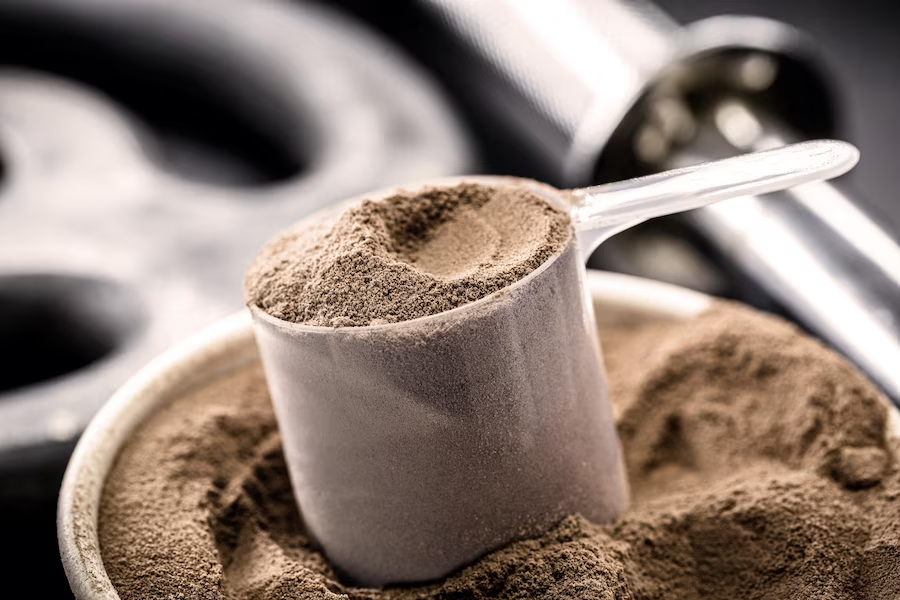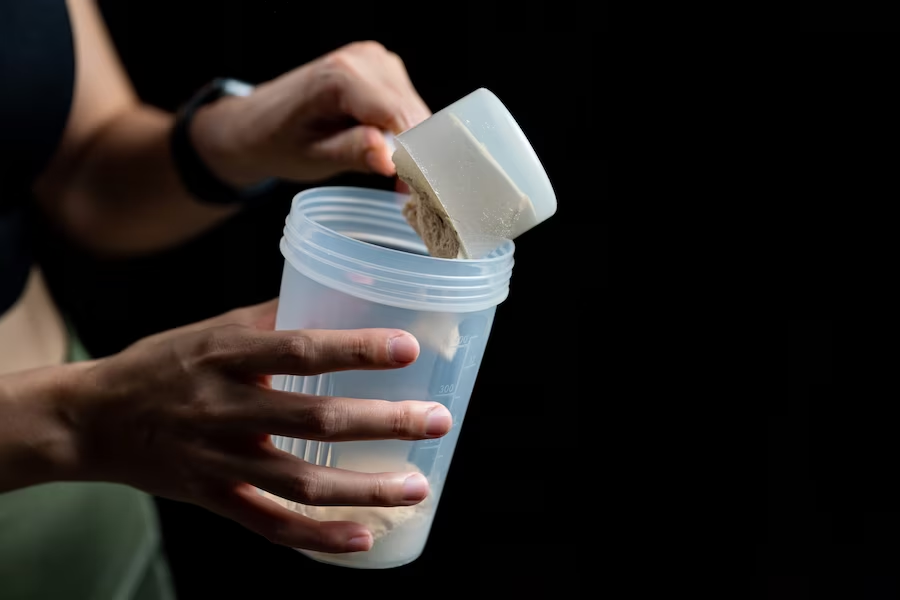The fitness industry has experienced a notable upswing in the popularity of protein supplements in recent times. Protein powders now stand as a fundamental choice for athletes, bodybuilders, and fitness enthusiasts who seek to optimize their muscle growth and recovery. Nevertheless, a growing concern revolves around the elevated sodium levels found in certain protein powders, which can adversely impact overall health, particularly for individuals with specific medical conditions. In response to this, low sodium protein powders have surfaced as a healthier alternative, offering all the benefits of traditional protein supplements without the drawbacks of excessive sodium intake. This article thoroughly explores the advantages, considerations, and frequently asked questions about low sodium protein powder.
The Need for Low Sodium Protein Powder
Protein plays a crucial role in facilitating muscle repair and growth, but it’s important to be mindful of excessive sodium intake, which can contribute to health problems like high blood pressure, heart disease, and kidney issues. The conventional protein powders often contain significant levels of sodium as an additive, aimed at enhancing taste, texture, and extending shelf life. However, the tide is shifting, and more and more consumers are now seeking low sodium alternatives to minimize the adverse impact on their health.
The Sodium Dilemma
Sodium is indeed an essential mineral responsible for regulating fluid balance, nerve function, and muscle contraction. However, in today’s typical modern diet, excessive sodium consumption is a common concern, primarily stemming from processed foods and additives like sodium chloride. The World Health Organization (WHO) advises limiting sodium intake to less than 2,000 mg per day, but unfortunately, many people surpass this recommended limit. This becomes an even more significant issue for individuals who regularly consume protein shakes or smoothies containing standard protein powders, as these products may harbor hidden sodium content.
Traditional Protein Powders and Sodium Content
Traditional protein powders are highly favored for their convenience, protein concentration, and ease of incorporation into one’s diet. These powders are commonly derived from sources such as whey, casein, soy, or plant-based proteins like pea and rice. They provide a quick and efficient solution to meet daily protein needs. However, it’s essential to note that they often come with elevated sodium levels. Manufacturers frequently include sodium as an additive to enhance taste, improve texture, and prolong shelf life, making these products more appealing to consumers and more competitive in the market.
Health Implications of High Sodium Intake
Consuming excessive sodium can have detrimental effects on our health, giving rise to various issues such as high blood pressure (hypertension), heart disease, and kidney problems. Hypertension, in particular, poses a significant risk factor for cardiovascular complications like stroke and heart attacks. Moreover, the kidneys may encounter difficulties in efficiently regulating sodium levels, potentially leading to the formation of kidney stones or impairing renal function. It’s crucial to be mindful of our sodium intake to safeguard our overall well-being.
The Rise of Low Sodium Protein Powder
With health-conscious consumers becoming increasingly aware of the potential risks associated with high sodium intake, there is a growing demand for healthier alternatives. In response, the fitness and nutrition industry has stepped up by offering low sodium protein powder options. These products are specially designed to provide essential protein while prioritizing overall health. Leveraging innovative manufacturing techniques and natural flavor enhancements, manufacturers have successfully created low sodium protein powders that are both nutritious and delectable, catering to the discerning tastes of health-conscious individuals.
Benefits of Low Sodium Protein Powder

| Benefit | Description |
|---|---|
| Heart Health | Excessive sodium intake is linked to a higher risk of hypertension and cardiovascular diseases. Opting for low sodium protein powder allows individuals to prioritize heart health and decrease the likelihood of developing related conditions. |
| Kidney Function | The kidneys play a vital role in filtering sodium from the body. Consuming excessive sodium can put a strain on the kidneys, potentially leading to kidney dysfunction. For individuals with kidney concerns or a family history of kidney issues, opting for low sodium protein powder can be beneficial as it helps reduce the burden on the kidneys, supporting better kidney health. |
| Blood Pressure Management | Sodium is recognized for its ability to elevate blood pressure levels, making it a concern for individuals with hypertension. Utilizing low sodium protein powder can aid in maintaining healthy blood pressure, a critical aspect of overall well-being and health. |
| Fluid Balance | Excessive sodium consumption can disturb the body’s fluid balance, resulting in water retention and bloating. By choosing low sodium protein powder, individuals can promote and maintain proper fluid balance, avoiding the discomfort caused by fluid retention. |
| Muscle Recovery and Growth | Despite their low sodium content, these protein powders remain abundant in essential amino acids, crucial for supporting muscle recovery and growth. They deliver all the necessary nutrients without the additional sodium, ensuring a balanced and healthy approach to fitness and nutrition. |
Key Considerations for Choosing Low Sodium Protein Powder

When choosing a low sodium protein powder, there are several critical factors that warrant careful consideration. Not all protein powders are alike, and finding the one that best suits your needs can have a substantial impact on your fitness objectives and overall well-being. In this comprehensive guide, we will explore the key considerations that will empower you to make an informed and intelligent choice.
Sodium Content
One of the primary motivations for choosing a low sodium protein powder is to effectively reduce overall sodium intake. High sodium consumption can contribute to health issues like hypertension and cardiovascular problems. Thus, it is vital to carefully examine the nutrition label and verify that the protein powder is genuinely low in sodium. Typically, the threshold for low sodium content is defined as containing less than 140 milligrams per serving. This diligent attention to sodium levels will ensure you make a healthy and conscious choice for your nutrition needs.
Protein Source
The protein source serves as the foundation of any protein powder, profoundly influencing its quality and efficacy. When searching for protein powders, prioritize those that derive their protein from high-quality sources such as:
- Whey Protein: Whey is a complete protein extracted from milk, encompassing all the essential amino acids essential for muscle growth and repair;
- Casein Protein: Another protein derived from milk is casein protein, which is known for its slow-digesting properties. It offers a sustained release of amino acids, promoting muscle recovery over an extended period of time;
- Soy Protein: A fantastic plant-based choice, soy protein is abundant in amino acids and serves as a suitable option for vegetarians and vegans;
- Pea Protein: Pea protein is another well-liked plant-based option, known for being hypoallergenic and easily digestible.
Opting for a protein powder with a high-quality protein source guarantees that you receive the essential amino acids required to promote muscle health and overall well-being.
Flavor and Taste
While reducing sodium intake is crucial, it’s equally important to discover a low sodium protein powder that is both enjoyable and palatable to consume. Some low sodium options may compromise taste to achieve lower sodium levels, but that doesn’t mean you have to settle for a bland or unappetizing choice. To find a protein powder that suits your preferences, consider exploring various brands and flavors. Many reputable manufacturers offer a diverse range of delicious options, from classic chocolate and vanilla to more unique flavors like cookies and cream or salted caramel.
Additional Ingredients
During your search for a low sodium protein powder, remain vigilant about other additives and sweeteners present in the product. Some manufacturers might compensate for reduced sodium by incorporating excessive artificial sweeteners or fillers. It’s essential to steer clear of protein powders that contain unnecessary and potentially harmful ingredients. Instead, opt for products with a straightforward and transparent ingredient list, avoiding those with high levels of added sugars or artificial additives. This way, you can make a more health-conscious and informed choice for your protein supplement.
Certifications
To guarantee the safety and reliability of your chosen product, seek low sodium protein powders that hold certifications from reputable organizations like NSF International or Informed Choice. These certifications ensure that the product has undergone thorough testing for quality, purity, and safety. Moreover, certified protein powders are free from contaminants and banned substances, granting you peace of mind regarding the integrity and trustworthiness of the product.
Conclusion
Low sodium protein powder stands as an exceptional option for fitness enthusiasts seeking a healthier alternative to traditional protein supplements. With its multitude of benefits, including improved heart health, enhanced kidney function, and effective blood pressure management, it proves to be a valuable addition to a well-rounded fitness and nutrition plan. By carefully considering key factors when selecting the right low sodium protein powder, individuals can relish all the advantages of protein supplementation without compromising their overall health. Embrace the advantages of low sodium protein powder in your fitness journey, making an informed decision that prioritizes your well-being and supports your quest for a healthier and more active lifestyle.
FAQ
Absolutely! Regardless of whether you follow a low-sodium diet or not, choosing low sodium protein powder can be a proactive measure towards sustaining overall health and minimizing the risk of various health conditions associated with excessive sodium intake. It’s a wise decision that supports your well-being and fosters a health-conscious approach to nutrition and fitness.
Indeed, low sodium protein powder proves to be an exceptional choice for athletes and bodybuilders. It offers the essential protein required for muscle recovery and growth, all while avoiding the disadvantages of excessive sodium consumption. By opting for this healthier alternative, fitness enthusiasts can optimize their performance and achieve their goals without compromising their overall health.
Low sodium protein powders might have a slightly milder taste compared to regular protein powders with higher sodium content. However, given the diverse array of available flavors, it’s effortless to discover a low sodium protein powder that perfectly aligns with your taste preferences. With various delicious options to choose from, you can enjoy the benefits of low sodium protein without compromising on taste.
Indeed, protein powders, including low sodium options, can contribute to weight loss by fostering satiety and preserving muscle during calorie deficits. However, it is vital to emphasize that sustainable weight loss requires maintaining a well-balanced diet and engaging in regular exercise. Protein powders can complement your efforts, but they are most effective when integrated into a holistic approach to achieving and maintaining a healthy weight.
When used in moderation and as part of a well-balanced diet, low sodium protein powder is generally safe for most individuals. However, some people, especially those new to protein supplements, may experience mild gastrointestinal discomfort. It’s essential to adhere to the recommended serving sizes and consult a healthcare professional if you have any concerns or specific health considerations. Prioritizing safety and listening to your body’s responses will help you make the most of the benefits of low sodium protein powder without any unnecessary discomfort.
